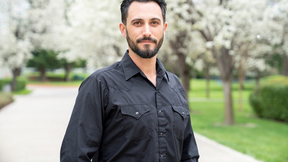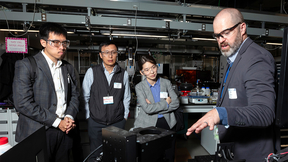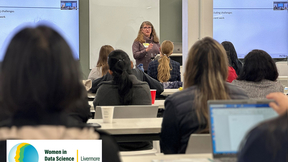Virtual Teacher Research Academy offered this summer
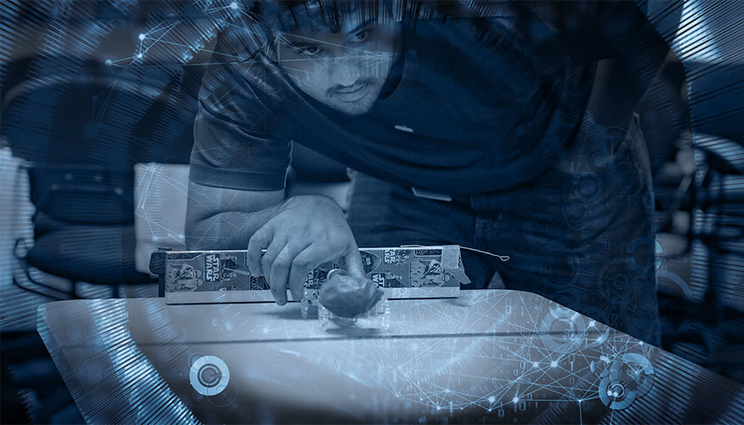 (Download Image)
(Download Image)
In response to limitations due to COVID-19 and social distancing guidelines, the Lab is taking a new approach and bringing the TRA to participants virtually.
Lawrence Livermore National Laboratory (LLNL) has a long history of providing professional development courses each summer for all levels of educators via the Teacher Research Academy (TRA). Under normal circumstances, courses are offered in a hands-on classroom environment with access to equipment and facilities.
This year, in response to limitations due to COVID-19 and social distancing guidelines, the Lab is taking a new approach and bringing the TRA to participants virtually.
The TRA will offer the same quality professional development curriculum to middle and high school science teachers and community college faculty via an online platform. Participants will gain knowledge in scientific disciplines such as 3D print and design, bioscience, fusion/astrophysics, computational modeling and technical writing. New to the offerings this year is a Physics With Phone Sensors TRA, which will provide hands-on activities to explore core disciplinary ideas in physics using smartphones. All courses provide standards-based instruction in line with Common Core State Standards (CCSS) and Next Generation Science Standards (NGSS).
Participants will meet LLNL scientists online, learn about cutting-edge scientific research conducted at the Laboratory, take virtual tours of research facilities, learn technical writing skills to better communicate scientific information and improve their ability to guide student research.
The TRA’s will be held in June and July; registration is now open. Course times are from 8:30 a.m. to 2:30 p.m. daily. See the complete schedule of academies and workshops below:
- June 15-17
Prepares teachers to build students’ technical-writing skills toward CCSS goals to improve lab instruction, technical literacy, lab notebooks, abstracts and science posters.
- July 6-10
Emphasizes overview of the field with instruction on basic skills to include DNA and protein analysis through inquiry and experimentation.
- June 15-19
Introduces concepts of computer modeling and simulation using programming with NetLogo to apply toward STEM curriculum using real-world applications.
- June 8-12
Focuses on properties of electromagnetic radiation, spectroscopy, gravitation and nuclear physics using tools employed in research laboratories through hands-on activities.
- July 13-17
Incorporates modeling, design and 3D printing for introduction to curriculum, printing everyday objects from computational models using Tinkercard.
• June 22-26
Focuses hands-on activities designed to use science and engineering practices in physics using sensors in a smartphone.
Register online. There is no charge for these workshops.
The TRAs are sponsored by LLNL's University Relations and Science Education Program. Visit the LLNL Science Education Program website for more information about the TRAs and other educational outreach programs.
For more information, contact albala1 [at] llnl.gov (Joanna Albala), LLNL Education Program manager.
Contact
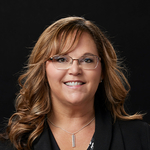 Carrie L Martin
Carrie L Martin
[email protected]
(925) 424-4715
Related Links
Science Education ProgramTags
Community OutreachFeatured Articles
